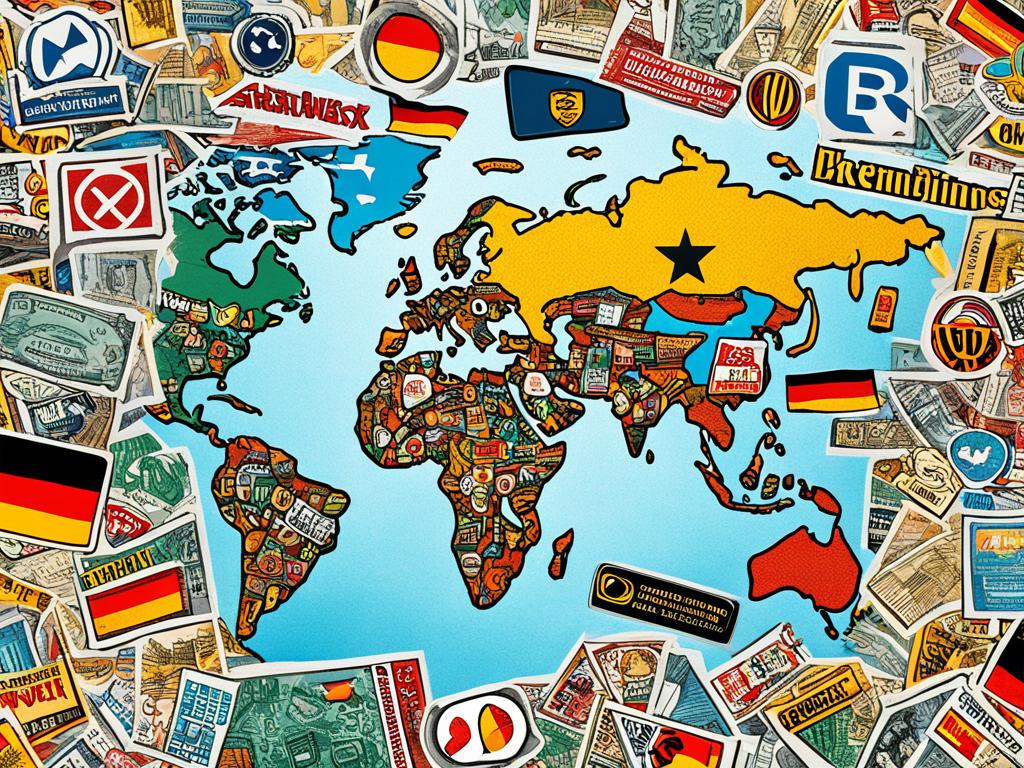Are you a non-resident wanting to know how the German banking system works? It’s important to understand how to open a bank account there. Germany is home to many banks, including private, public savings, and cooperative ones1. If you’re moving for work or just handling your money abroad, you’ll need a valid passport and maybe a residence permit. You’ll also choose from various banking services that meet your money goals1. For expats, Deutsche Bank and Commerzbank are top choices, serving millions in Germany. Online banks like N26 and Revolut offer easy, branch-free banking1.
Looking for an international bank account in Germany? International banks like Barclays and HSBC are available, making things easier for expats and non-residents1. When opening a German bank account, consider the fees, service range, ease of access, and if the account features fit your financial needs. Think about what you need, like daily use or saving for the future1.
Expatriates should compare traditional and online banking to find the right German bank account. Choices range from Deutsche Bank’s wide customer base to fintech solutions like N26. The German banking sector has something for everyone1.
Understanding the German Banking Landscape for Foreigners
Opening a Germany bank account for non residents might feel tough at first. But knowing the local banking scene is key to managing your money well here. Let me show you around Germany’s banking world. The country’s banking structure is built on three main types: private commercial banks, holding about 40% of all banking assets, and public savings banks (Sparkassen and Landesbanken), plus cooperative banks (Genossenschaftsbanken)2.

In this system, you’ll find different kinds of bank accounts. For day-to-day money management, the Girokonto is a must-have in Germany. But there’s more to explore for expats. You have choices like a Sparkonto for saving with limited withdrawals, a Tagesgeldkonto for easier access to your funds, and a Festgeldkonto for fixed-term investments.
Although local banks tend to cater to residents, online and mobile banking open doors for non-residents. Banks like Deutsche Bank, globally known and the 16th largest in the world by assets2, provide top-notch internet and mobile services. This is great news for those moving to Germany.
- Electric payment popularity: Direct debits are the go-to electronic payment method in Germany, with 7.5 billion transactions in 2017. Meanwhile, card payments made up more than a third of all payments2.
- Adoption of mobile and app payments: Even though just 11% of smartphone users use payment apps, cash remains king. It still accounts for 74% of all payments2.
Knowing these details helps non-residents get a good grip on Germany’s broad banking landscape. From big names like Deutsche Bank and Commerzbank to digital-first banks like N26 and Revolut, there’s something for everyone’s financial journey here.
Selecting the Right Bank: Traditional Versus Online Banking Solutions
Choosing between banks in Germany shows clear differences between old-school and digital options. Traditional banks like Deutsche Bank offer various accounts and cards, such as Girokonto and Visa3. Yet, as a non-resident, I face slow processes and language barriers which add extra steps and time to getting started3.
On the other hand, digital banks such as N26 and Revolut simplify things a lot. N26 gives expats like me a free account and a Mastercard with English support, removing language issues4. Opening an account with them is quick, matching my need for fast service. Plus, N26 sends cards fast and makes transferring money easy, making them a top choice for expats who prefer online banking3.
While looking for the best bank in Germany, I compare local banks like HypoVereinsbank to direct banks like DKB4. The key is what you value more—broad services and face-to-face meetings or the convenience and speed of online banking. For expats in Germany, online banks offer efficient, tailored services that meet our unique needs better than traditional banks.

